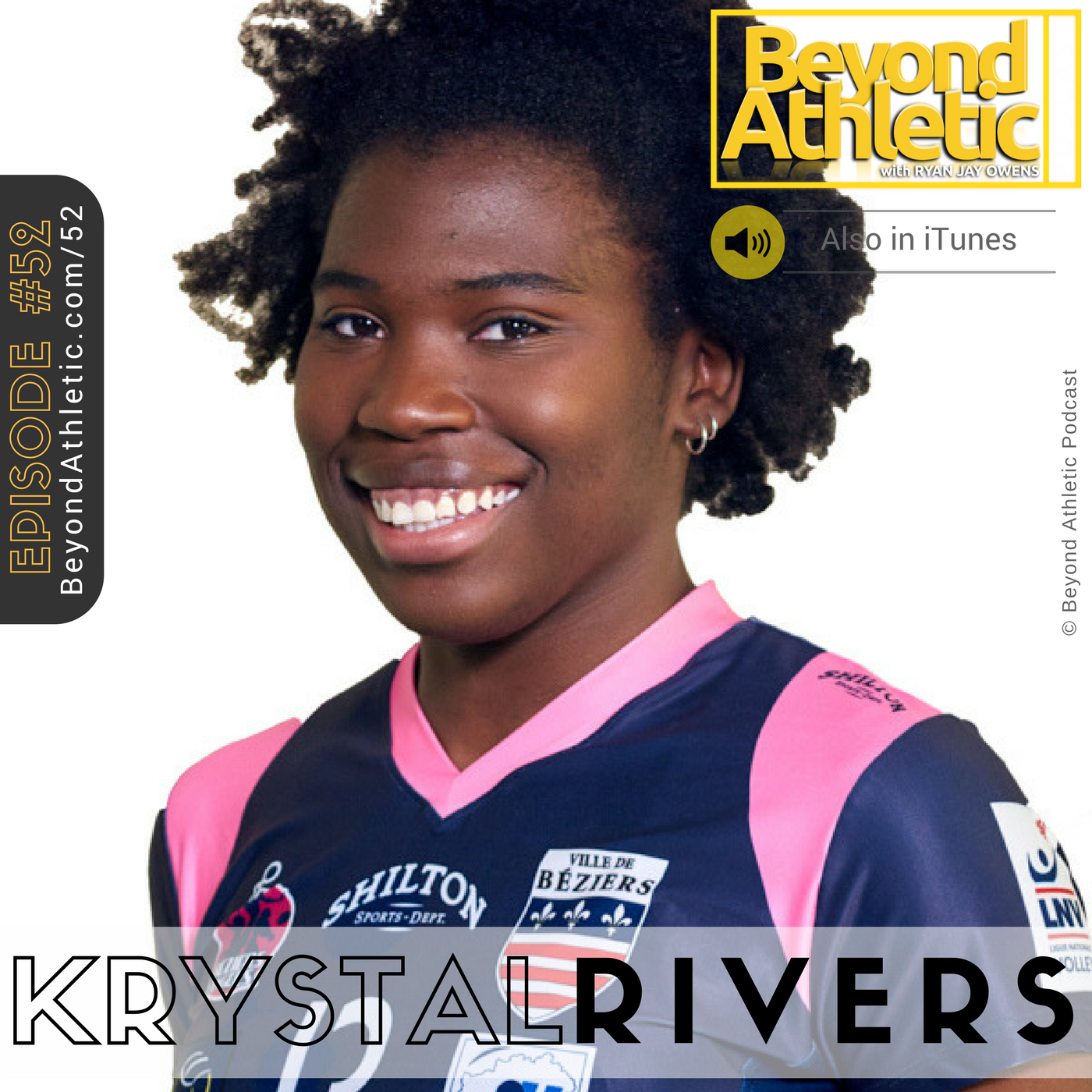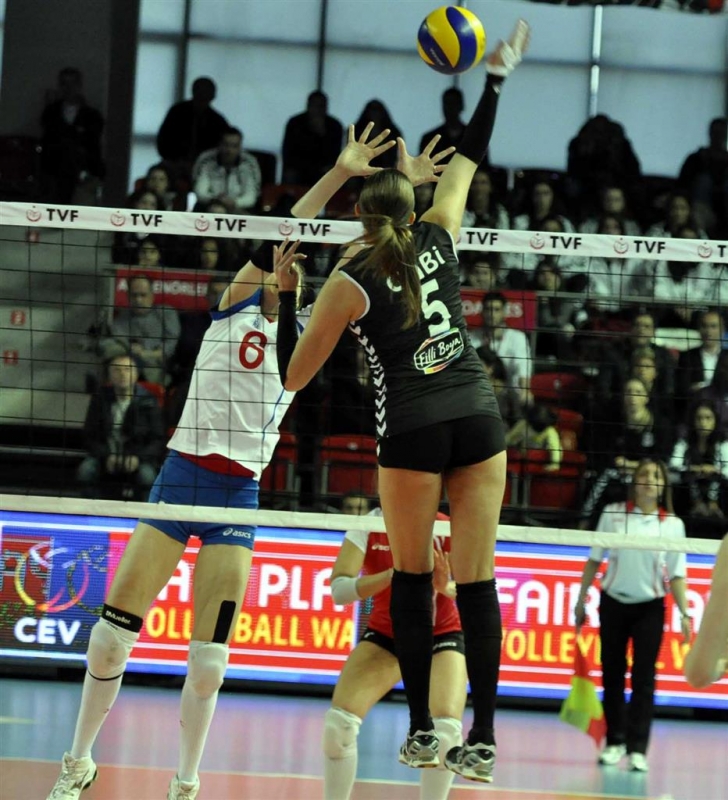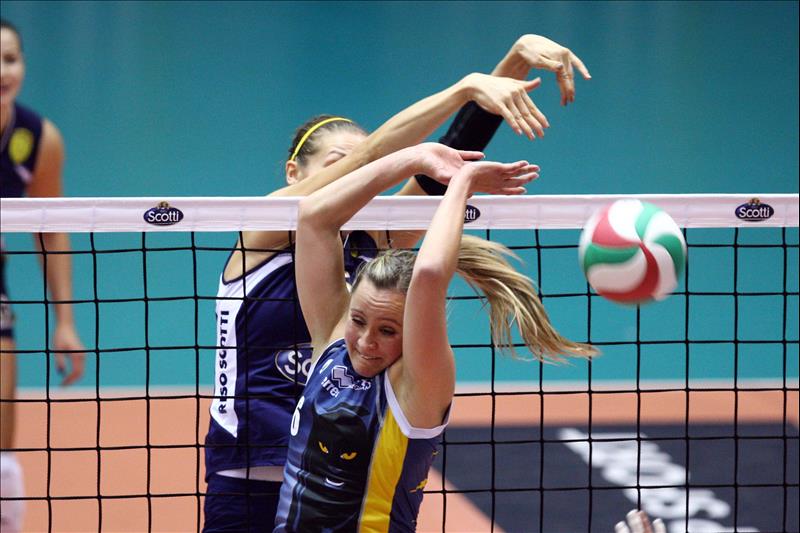(Part 2) 6 Must Have Middle Blocker Skills by Gabi Koeva
WHY IS THIS IMPORTANT?
Being a middle blocker is not an easy job - you are the player that may jump an run the most in a rally and still get no sets, or even make a full turn from serve to serve without even scoring a point. Boring, you might say? Well let me tell you something - your team might have the best outside hitters, a great setter and libero, but if it doesn't have good middles it will never be complete!
A dear friend of mine - coach Giovanni Giudetti (several time champion and cup holder of Turkey, 2 times Champions League gold medalist with the team of VakifBank Istanbul, 2 times European Championship medalist with team Germany, currently coaching team Netherlands and VakifBank) explains the role of a middle blocker - "The MB is like the bass guitar - you rarely feel it's presence, but you know a good song can never go without it!" He says a good team is like a chain of platinum - all the parts are strong. But if you have a couple of them made out of plastic, when you put pressure on the chain it will brake in the weak spots. That's exactly how important the MB is for a team - it holds it together and makes it complete!
SO....WHAT DOES IT TAKE TO BE AN ELITE MB?
LET'S START FROM THE VERY BEGINNING OF THE GAME AND FOLLOW ON THROUGH ALL THE SKILLS:
1. SERVE
2. RECEPTION
3. BLOCK
4. DEFENSE
5. ATTACK
6. COVER
PART 2: DEFENSE, ATTACK & COVER
4. DEFENSE
Rule #1 - do not ever let someone underestimate your capability of defending!
I've heard way too many times that no one expects from a MB to be a good defensive player. That's CRAP! (Pardon my language...). MB's can be as good as anyone else in the back of the court, because defense is 10% technique, 10% positioning, 10% reading and 70% pure will not to let the ball touch the ground! When you have the will to do it, the other 30% you can achieve easily by being concentrated and, of course, working on it during practice.
Briefly about the technique -->
- Legs a little more than shoulder width apart, knee bent (you're supposed to be in a fairly deep squat position) but your body weight away from your heels so you can be ready to move in all directions.
- Arms should be open in front of you and a little on the side as you anticipate the moment and place to catch them before encountering the ball. It is important to maintain this arm position because the ball won't always be coming straight to your arms. In a matter of fact most of the times it ill do the exact opposite, so you must be prepared to defend it in different positions and surfaces.
PRO TIP:
The one thing that totally changed the way I defend was something I read in a book about volleyball. The author was giving a tip on how to react on time when the ball is coming in your direction super fast.
So starting from the very beginning - we (MBs) serve and run quickly to our starting position. It may vary from team to team, as different tactics may be applied, but in the most cases - in zone 5, close to the 3m line and about a step off the side line. After the opponents setter sets the ball we move (or not) as quick as possible to our defense position, meanwhile trying to read the body and arm movements of the attacker, in order to anticipate the place where the ball will come. Here comes the tricky part - I could easily tell approximately which way the ball was going, but by the time I'd make a move fro the ball it would be too late.
Here's what to do - following the "reading the hitter" part you should try to keep your focus (here I mean visual focus, not mental) away from the net, as this is too long of a distance and the ball is going to pass that distance much quicker than your eyes and brain can actually react. Instead intentionally defocus your eyes and focus then on an imaginary surface closer to you. Pretend there's a window you're looking through, for instance, that's somewhere up to 1m 1/2 from where you're standing. This way when the ball comes in the area of your focus it will be on a distance close enough to ensure it's trajectory is constant and you can just place your arms where needed.
I really hope this tip will help you! For me personally it was a game changer - it turned my defense in one of my strongest skills!
5. ATTACK
After setter's second ball, MB's attack is the quickest offensive option for a team.
The timing of the jump is a crucial factor for first tempo attack. It depends on your own preferences and those of your setter, but there are several other things you can focus on to Up your game in offense.
First, focus on avoiding one of the most common mistakes - jumping too close to the net.
Make sure you start your approach a couple of steps further from where you usually do. In this way when you swing you'll find yourself in optimal position comparing to the net and your setter - that should be about 75cm to a meter distance.
Secondly pay extreme attention to the movement of your hitting arm.
This is one of the most important things you can actually control about your attack (since others may be depending on the set, the opponents block and etc.). When you swing for first tempo or 7, try to make your first step slower as you are preparing, watching the ball and your setter. Then make your right-left steps as quick and as explosive as possible while you lift your arm ready to hit the ball. In the moment your left leg touches the ground your arm should be almost all the way up already.
If you're approaching for a slide your arm swing must be even quicker! You should be making your approach with body fairly close to the ground. While accelerating your approach, your body posture should become higher. With the last step you jump from your left leg and at the same time you must pull your body upwards with the help of your bent in the knee right leg and your right arm. Right knee and right arm should go up simultaneously.
These two tips will let you see better the opponent's block and even be faster than it with your attack.
6. COVER
Cover is in a way also a type of defense. We're only not defending our court from the opponent's offense but from it's block. It's very important because it gives you and your team another possibility to organize counter attack.
As a MB you should know how a kill block affects your team's mindset and what a huge motivation booster it can be. You know also how frustrating it can be when you block an attacker again and again but the ball never hits the ground, as your opponent's teammates keep on covering.
Main tips about your skills in cover are:
- Your position: low and close to the ground and as in defense - your arms away from your body. Place yourself in the court depending on team tactics and wether you're on the net or backcourt.
- Don't try to follow the ball all the way from the hitter's hand to where it bounces off the block since this will give you less time for reaction as the ball will change it's trajectory several times. Instead keep your attention on the surface of the block, again using the "tip" for having your visual focus in an imaginary surface closer to you. Then just try to react and keep the ball alive! Even if you don't succeed sometimes even an attempt will be enough to give your teammate more confidence in her/his next attack.
*******************
Hopefully these tips were useful for you and you enjoyed reading.And remember that usually small changes and improvements are what makes the big difference in your confidence and performance!
Be bold and until the next time! -Gabi Koeva (Team Bulgaria)






![3 Things I Learned In Italy, Switzerland & Turkey by Gabi KOEVA [blog]](https://images.squarespace-cdn.com/content/v1/5461184be4b04efe62828f24/1424348899340-2LF964WIAP4Z74FX5UCD/image-asset.jpeg)















![#46 Nicole DAVIS [2x Olympian]: How to Harness Your Competitiveness (& Why You May Need To Pivot)](https://images.squarespace-cdn.com/content/v1/5461184be4b04efe62828f24/1477783406118-CJA7WUTHWNPYXDSW60ZM/Nicole+DAVIS+COVER+BAP.jpg)





































